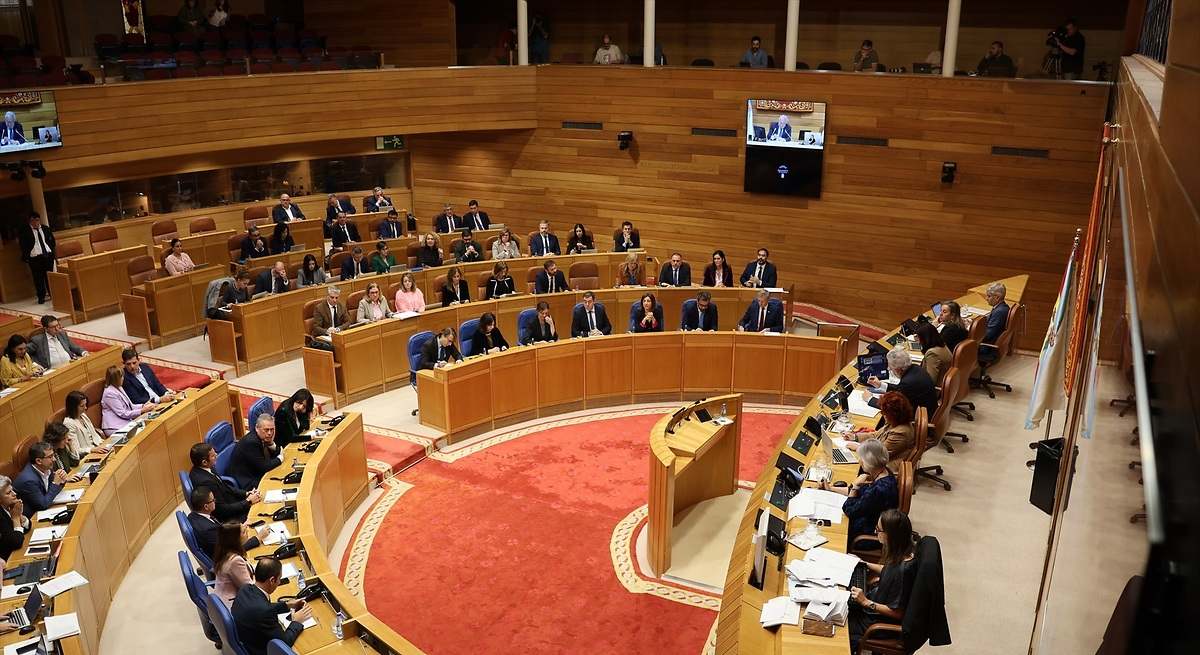Neutral Headline: Galicia Approves New Regulations Affecting Wind Energy Sector
Galicia has passed new regulations that impact the wind energy sector, alongside the Xunta’s 2025 budget. This has sparked controversy among industry associations, as it includes measures such as mandatory repowering for wind farms over 25 years old and incentives for companies signing power purchase agreements (PPAs) with local Galician companies.
Wind Sector Challenges
The wind industry estimates that nearly half of the operating wind power capacity in Galicia, around 2,007 megawatts (MW), will need to undergo repowering in the coming years. This affects 2,888 wind turbines in 86 parks that are over 20-25 years old. The new regulation mandates repowering for existing wind farms that have been operational for 25 years, with a possible extension up to 30 years if the turbines’ original lifespan exceeds 25 years.
Galician PPAs
The regulations also stipulate that authorization requests for wind parks in occupied areas will not be accepted, except under certain circumstances. One exception is if developers commit to power supply contracts (PPAs). These PPAs must provide at least 50% of the energy produced to local or industrial consumers within the project’s influence area or within Galicia, with a minimum contract duration of five years.
Sector Challenges Ahead
Industry associations have expressed concerns over these new regulations, arguing that wind parks operating beyond 25 years do so effectively. They believe the obligation to sell energy to local consumers constitutes a violation of market principles and may disrupt the competitive landscape. Additionally, the Xunta’s support for stalled renewable projects in legal limbo by allowing for the voluntary reprocessing of wind parks and evacuation infrastructures adds complexity to the sector.
Xunta’s 2025 Budget
The Xunta’s 2025 budget, totaling €13,954 million, was approved with only the PP’s support, despite criticism from opposition parties for what they deem as excessive modifications. The PP’s unilateral approval of the regulations has raised concerns among opposition members, who view the process as lacking transparency and democratic participation.
In conclusion, Galicia’s new regulations aim to modernize the wind energy sector but have stirred controversy within the industry. The enforcement of mandatory repowering and local energy supply requirements may shape the future landscape of renewable energy in the region.La energía eólica gallega enfrenta desafíos significativos en los próximos años.
Repotenciación en la energía eólica gallega
La mitad de los parques eólicos en Galicia deberá detener su actividad para someterse a procesos de repotenciación y modernización en los próximos años. A pesar de las presiones del sector de las energías renovables, la Xunta de Galicia planea seguir adelante con una ley que penaliza a las renovables.
Presiones y desafíos en el sector energético
La industria de las energías renovables se enfrenta a retos importantes a nivel normativo y técnico. La repotenciación de los parques eólicos es crucial para asegurar su eficiencia y sostenibilidad a largo plazo. A pesar de las críticas y objeciones del sector, las autoridades regionales han tomado la decisión de avanzar con medidas que afectarán la operatividad de estas instalaciones.
Impacto en la generación energética
La repotenciación de los parques eólicos gallegos puede tener un impacto significativo en la generación energética de la región. A medida que se modernizan y optimizan estas infraestructuras, se espera un aumento en la eficiencia y la capacidad de producción. Sin embargo, es fundamental abordar las preocupaciones del sector y garantizar una transición fluida hacia las nuevas regulaciones.
La transición hacia una energía más sostenible y eficiente requiere la colaboración de todos los actores involucrados. Es crucial encontrar un equilibrio entre la protección del medio ambiente y el impulso del desarrollo económico. La repotenciación de los parques eólicos en Galicia es solo un paso en esta dirección, pero su implementación efectiva será fundamental para el futuro energético de la región.





